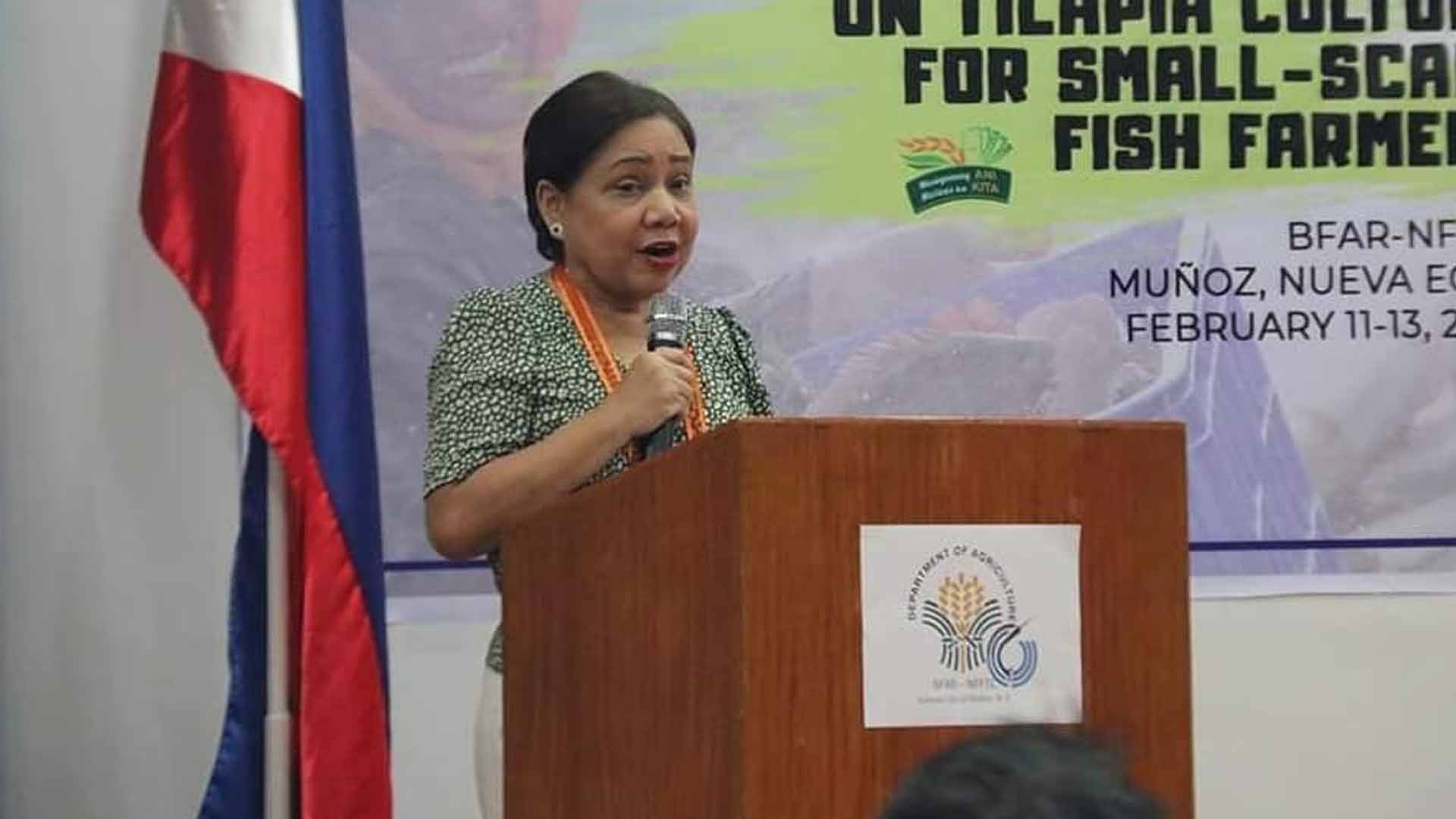Senator Cynthia Villar called on freshwater fisher folks to step up their yield by embracing new technology amid a grim prediction of lesser fish production by the United Nation’s Food and Agricultural Organization (UNFAO).
Villar, chairperson of the Senate Committee on Agriculture and Food, told 33 completers of a trainors’ training on aquaculture and fisheries initiated by the Bureau of Fisheries and Aquatic Resources (BFAR) at Central Luzon State University (CLSU) here, that fishers who have knowledge of new technology earn more.
“Kaya ngayon ay nagtuturo kami ng technology on aquaculture dahil naniniwala kami na mas lalaki ang kita ninyo kapag alam niyo yung technology (That is why we are now teaching technology on aquaculture because we believe that you will earn more once you know the technology),” she said.
The trainees came from different Luzon regions and will be tasked to train fisherfolk in their respective areas.
Villar said the training is being conducted by the government after UNFAO reported a decline in fish production.
“Twenty years ago, 70 percent of our fish are coming from the ocean and 30 percent are from aquaculture. But today, it’s 50-50. In fact, mas malaki na yata ang aquaculture – 52 percent aquaculture at 48 percent galing sa ocean (aquaculture has more production at 52 percent and 48 percent from the ocean),” she said.
“Kasi na o-overfish at nai-illegal fishing ang ocean. Madumi ang ocean (Because the ocean is being overfished and there is illegal fishing. The ocean is dirty),” she said.
“At ang pinaka-grabeng (the worst) prediction in 2050 is 100 percent na ang aquaculture,” said Villar, who had led the institutionalization of farm schools in different parts of the country.
During the three-day training, fishermen and farm owners were lectured on modified intensive tilapia hatchery production, fry collection, feeds and feeding using locally available feed ingredients, feeding of tilapia using extruded floating feeds, tilapia grow-out management, tilapia health management, and good aquaculture practices.
Villar lauded the BFAR-Region 3, National Fisheries Research and Development and National Freshwater Technology Center for the training held in coordination with the Villar Sipag at Tiyaga Foundation.
Laurence Gahid, a cooperative leader from Ifugao, said the training had opened the door for another livelihood opportunity for his members.
“We have practically zero knowledge in aquaculture when we came here,” he said, adding that the three-day training convinced them that aquaculture is a worthwhile investment.
Villar said the promotion of aquaculture comes with the need to provide a source of fingerlings thus, they are now creating legislation on local level areas for marine hatcheries.
Meanwhile, Undersecretary Eduardo Gongona, national director of BFAR, said protection of the ocean should be instituted as fishing “is no longer a right” but a “privilege” as in other parts of the world.
“You fish, you pay. E di marami kang makukuhang proceeds dun. And then pag naibalik mo yung sustainability niya dapat yung mga kumpanyang malalaki na nakikinabang diyan sa dagat dahil productive na siya, naging sustainable siya for the next generation, dapat meron silang corporate social responsibility (There will be more proceeds there. And then, when sustainability comes back, the big companies, which are getting benefits from the ocean since it is already productive and sustainable for the next generation, must have corporate social responsibility),” he said. (PNA)


